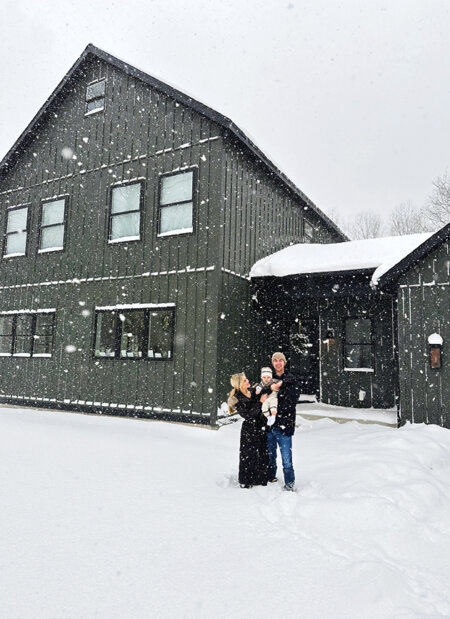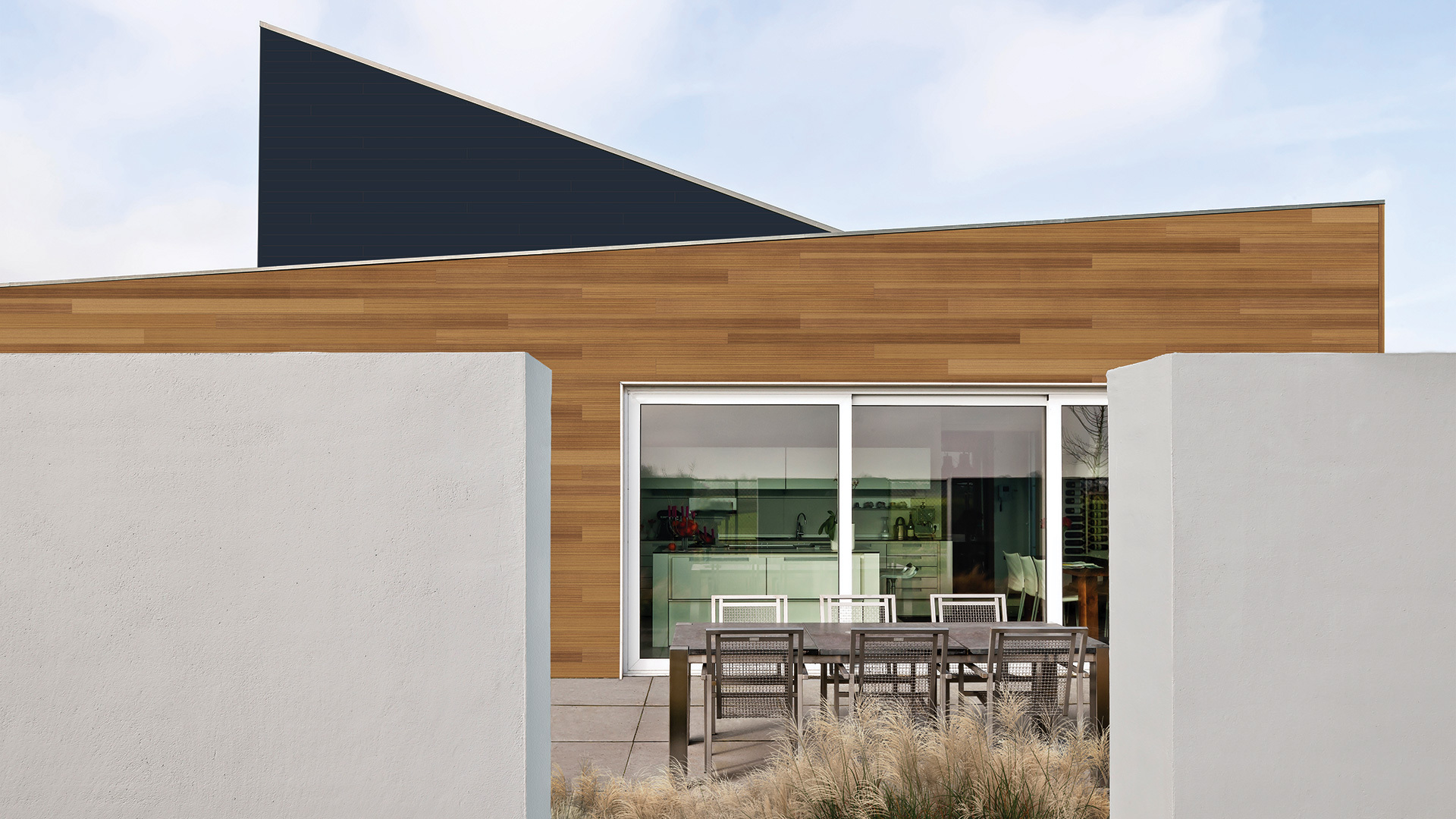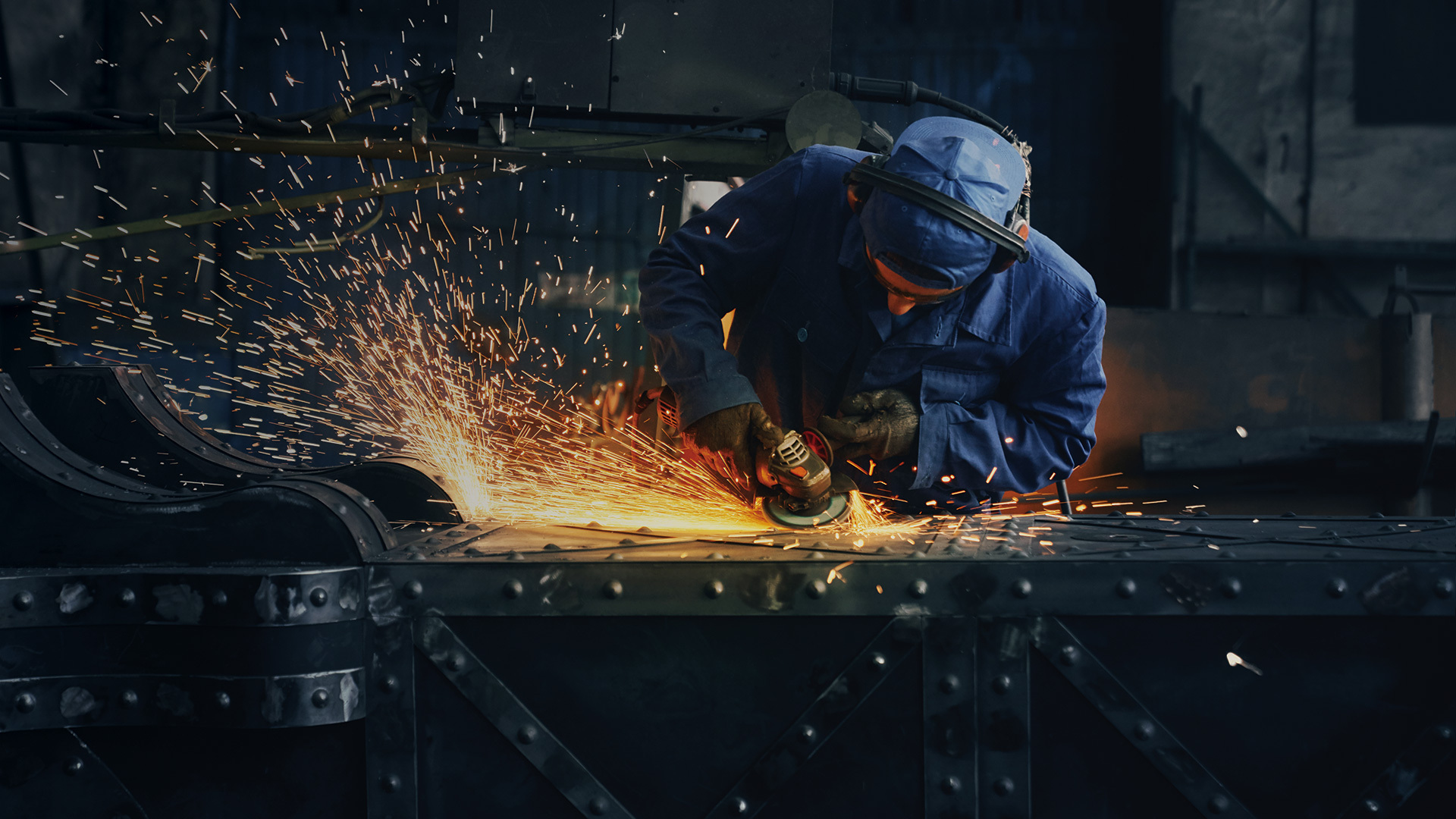Whether you’re building, adding on, or doing a complete renovation, choosing the right materials is important. Choosing colors and textures that reflect your style and your home design is important. But even when you nail these decisions, you better have the right contractor for the job—because that might be most important choice of all.
Before signing on the dotted line, it’s always good to do your homework—because every project is different, and every contractor has their own processes and advantages.
For deeper insight, we spoke with two contractors—Herman Hanko from TruBuilt Builders and Drew Terwee from Scott Christopher Homes.
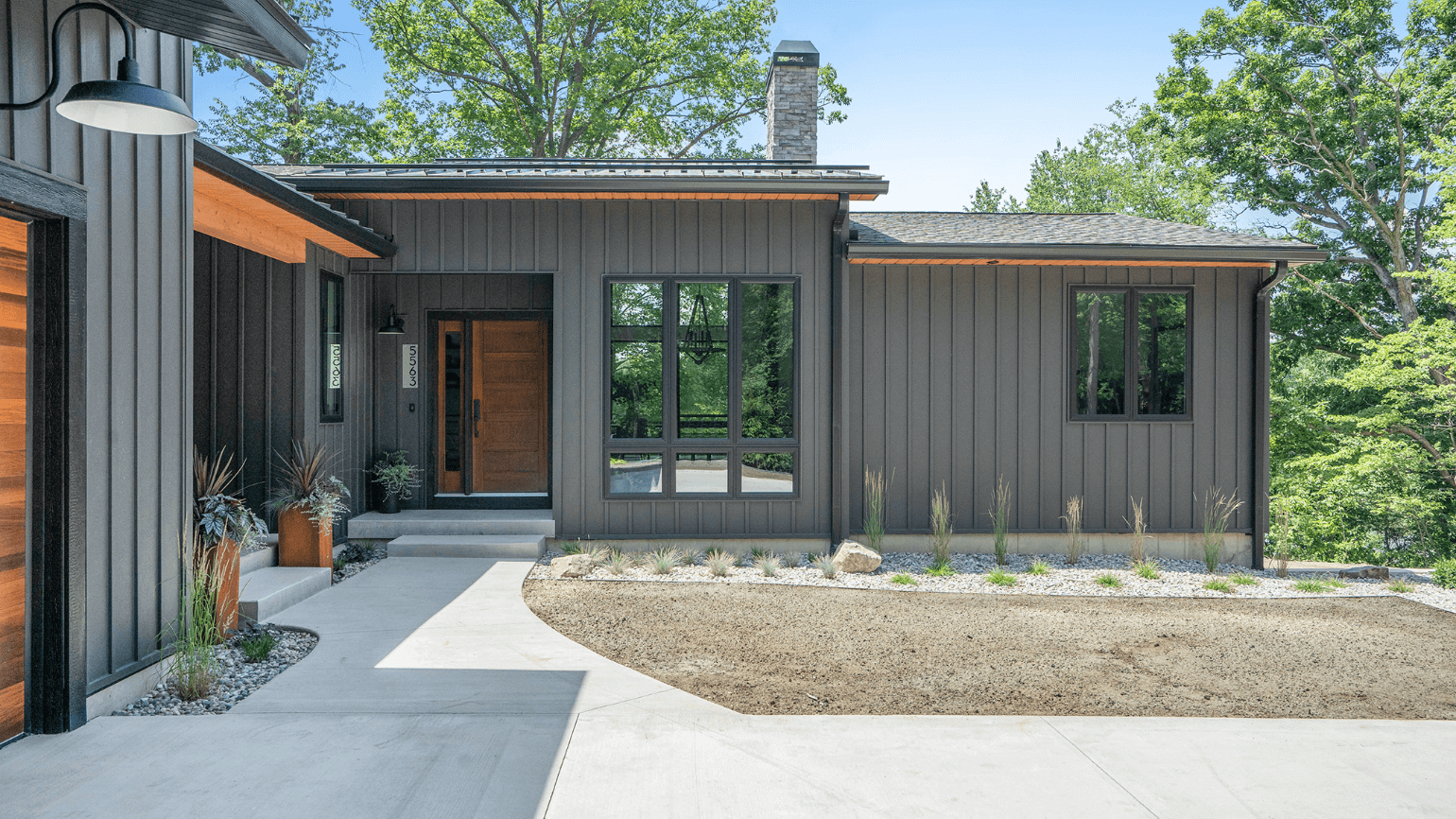
Timpson Property by TruBuilt Builders
First Thing’s First
Before just diving into a project, it’s important to understand how contractors deliver projects. Ask about their fees and what’s included. Also seek to understand how a contractor executes and manages projects—beginning to end. Have 2–3 meetings with different contractors. And then, once you’re comfortable you found the right one, it’s time for a kick-off meeting.
“Our job is really understanding what they need, and it gives us the opportunity to tell them how they can best help us,” says Herman Hanko from TruBuilt Builders. “It’s really important that we’re all on the same page from day one.”
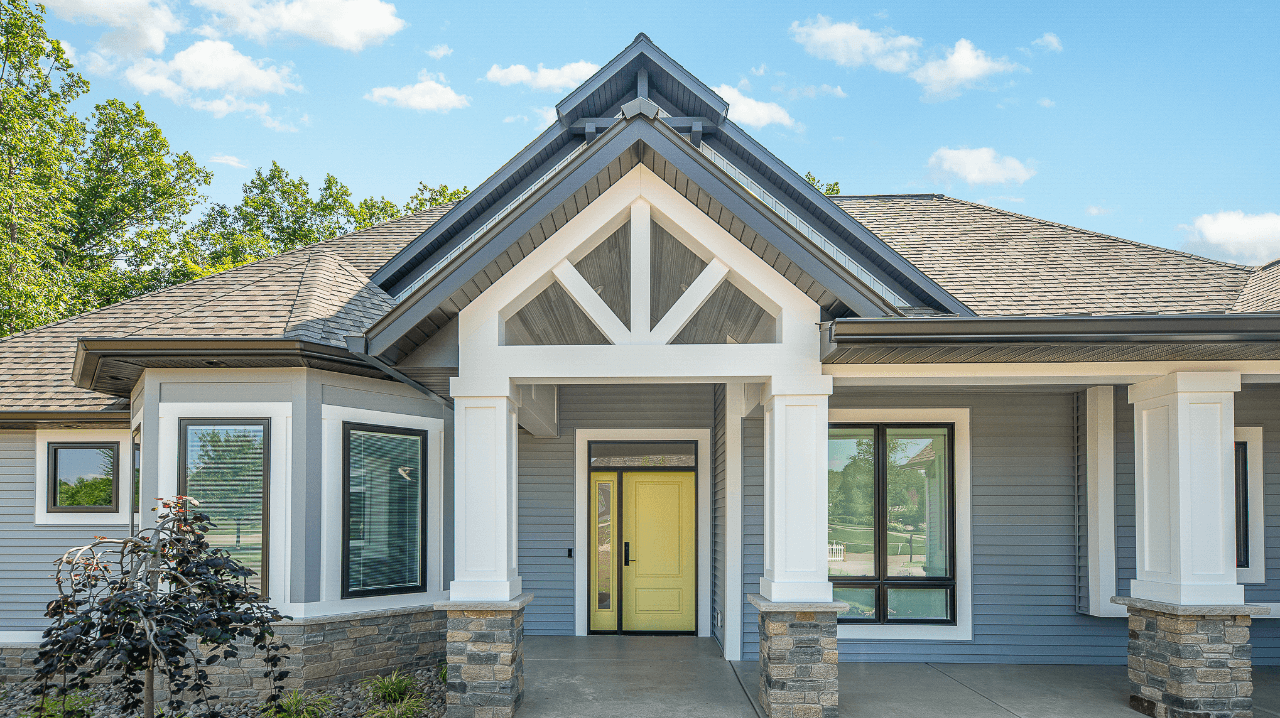
Stonehenge Property by TruBuilt Builders
Finding Your Style
Between siding, roofing, colors, flooring, hardware, and countless other design decisions, building or remodeling can be overwhelming. “We always suggest collecting pictures and sharing with a design team,” says Herman. “Provide a theme that a contractor or interior designer—whether they’re on staff or third-party—can follow and help execute on.” For exterior colors, Herman also recommends driving by a home with the same color, since images online can appear different than the color in real life.
Being a Good Client
As much as you’re vetting a contractor, they’re also vetting you, and being a good client starts by knowing what quality work will take. “It’s best when people understand that building a custom home isn’t always about getting the lowest possible price,” says Drew Terwee from Scott Christopher Homes. “There’s a cost/quality value equation that produces the best product, and a good contractor knows exactly where the sweet spot is.” But at the end of the day, a successful project takes more than a single contractor. “It takes a whole team,” says Drew. “A good client will hire the right architect, designer, and builder—and trust the expertise of everyone involved.”
”There’s a cost/quality value equation that produces the best product, and a good contractor knows exactly where the sweet spot is.
Drew Terwee, Scott Christopher Homes
The Mark of a Great Contractor
At the end of the day, it’s all about relationships. When you choose a contractor, you ideally want one who is transparent, open about pricing and knowledgeable. “One of the cornerstones of any qualified contractor is effective communication—plain and simple,” says Drew. “The more information a contractor has about a client’s expectations, the easier it is to meet or exceed them.”
Herman agrees that communication is vital, adding that it’s also important for the homeowner to feel in control. “It’s the biggest investment most people ever make, and they deserve to feel like they’re in the driver’s seat,” he says.
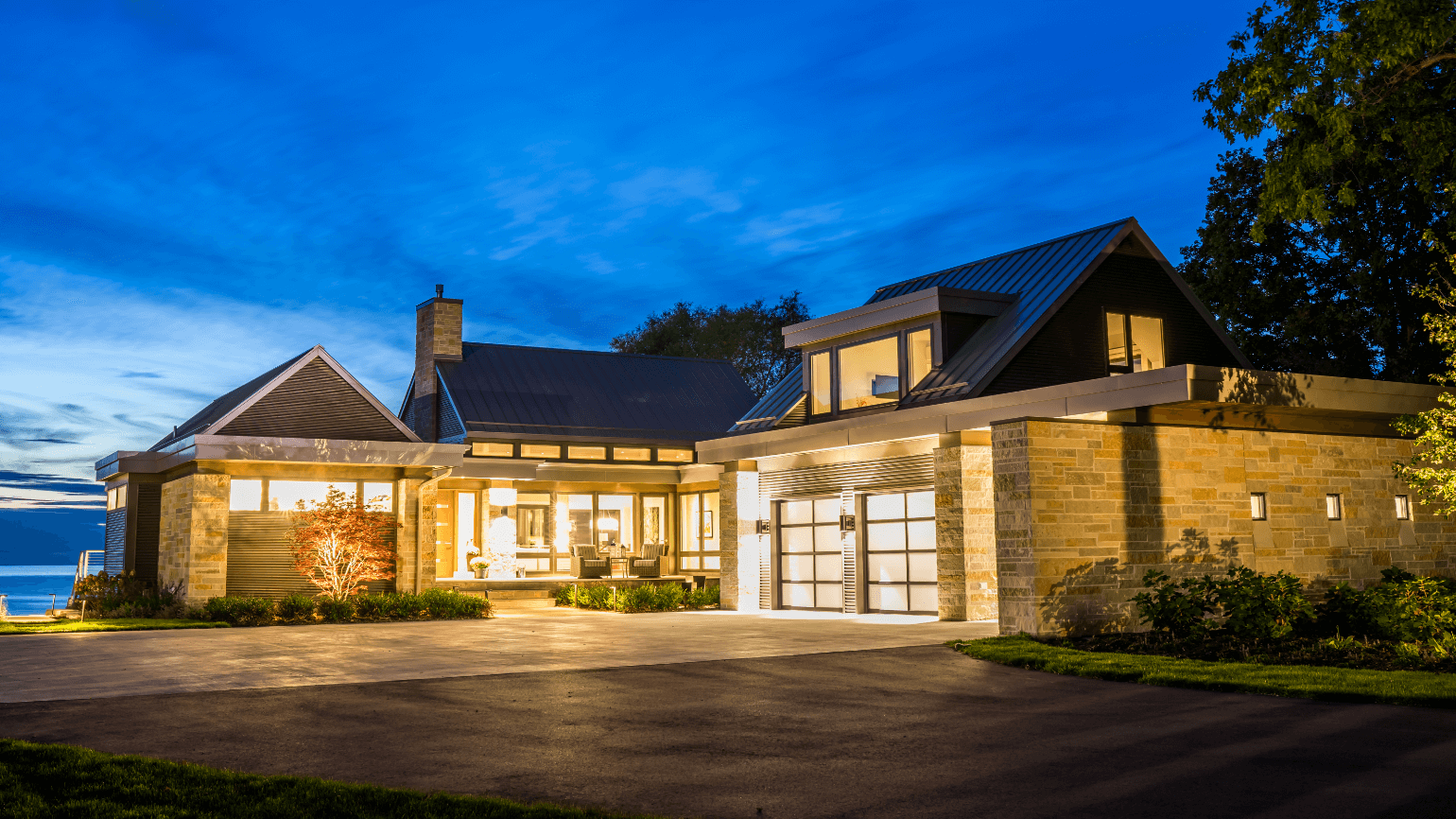
Endless View Property by Scott Christopher Homes
Photography: Brad Douglas Design
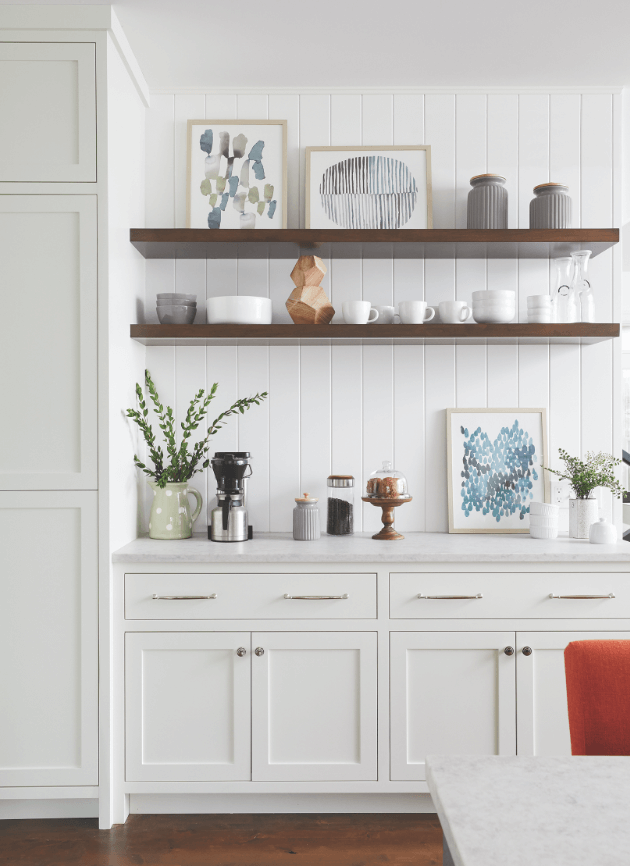
Custom Cabinetry by Scott Christopher Homes
Photography: Werner Straube
What to Expect When Building a Custom Home
High End Home
- A pre-designed blueprint. (Keep in Mind: There are countless out there to choose from, and still might be the home of your dreams.)
- Quality—but not luxury—materials and fixtures.
- A process that lasts between 8 and 14 months.
Luxury Home
- A custom design from an architect. (Tip: Ideally, you want the architect and contractor to have an established relationship.)
- Higher-end materials and fixtures.
- A process that lasts 1–1.5 years—possibly more depending on size and scale.

